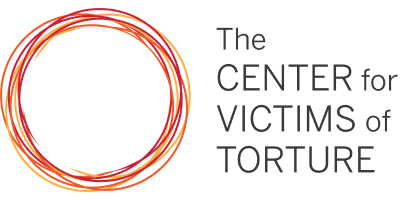There are eight members of the Hadad* family. They fled to Jordan from their home in Syria, seeking safe shelter after their home was demolished and properties looted. Their experience of war was replete with violence, terror and devastating loss. In addition, some members of the family have physical issues that need medical intervention. The family has no hope ever to return to their home country as they are targeted by many armed groups and have nothing left to return to.
The Hadad parents benefited greatly from CVT Jordan’s rehabilitative care. However, they conveyed that living as refugees in exile was a second trauma that exacerbated their agony.
After coming to CVT, they were hopeful and had the feeling that one day they would have the chance to rebuild their lives and have a better future. That feeling came true when they were informed by the International Organization for Migration (IOM) that their resettlement file was accepted to the U.S. This was a big surprise for all the family members; they said the surprise represented “that we are grasping a thread of hope – it would be terrifying to lose it.”
Today, they are living between a rock and hard place: unable to return home or to sustain themselves in exile.”
The family members went through three interviews with the IOM jury, and they completed all the medical tests, required vaccinations and orientation sessions. Everything went smoothly, and the family started selling their furniture and preparing to resettle. The family’s plans for the future included the eldest daughter’s dreams for education. She is very smart and her academic achievement in school was very high. She plans to study medicine and is very interested in volunteering to treat refugees free of charge because she knows how painful the situation is for those in need of medical treatment when they don’t have the access or the money for such a service.
The family was informed by IOM that they would be landing and staying in Arizona state because their sponsor, a family friend, lives there. So the family was ready to go, waiting only for the airline tickets and travel itinerary.
However, after the U.S. Muslim and refugee ban that was initially issued in January and March of 2017, the process stopped. After more than seven months, nobody contacted them from IOM. When the Hadads tried to call IOM, they got nothing, no answers. This sudden and unexplained change put the family into a stressful, uncertain situation without information or alternatives. As a result, the whole family felt under psychological pressure, and their mental status was in a state of gradual deterioration. There was tension among the family members – they felt their dreams were torn apart. They had deep grief and agony in their souls. Today, they are living between a rock and hard place: unable to return home or to sustain themselves in exile.
*Name and some details have been changed for security and confidentiality.
Image by Dreamstime.
